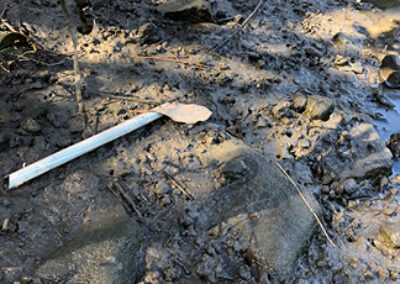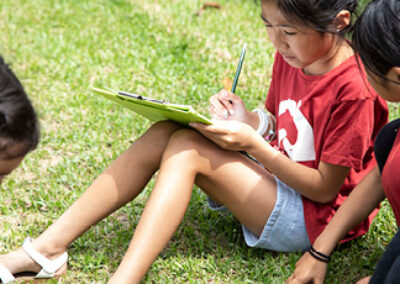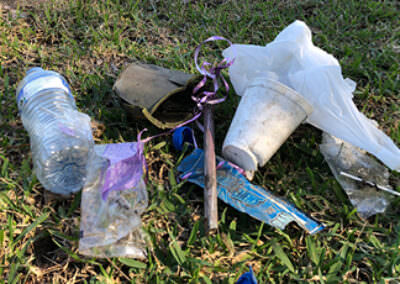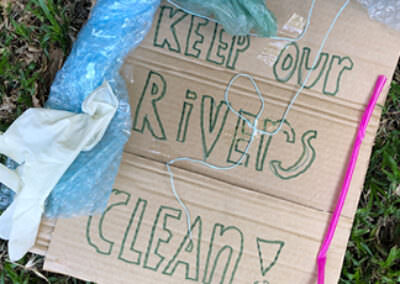
Waterways: behaviour change
Time Allocation: 30-40 minutes
Activity Level: Moderate
Introduction
Water quality is important to the liveability of places for people, animals and vegetation. If everyone makes small changes, we can make a big difference to the health of our waterways. Junior Landcarers will be able to draw on their experiences from their waterways clean-up activity, field data collection and analysis, to identify ways they can personally adjust their habits to reduce their waste and influence others to do the same.
Checklist
Instructions
 STEP 1
STEP 1
As a result of your Junior Landcare waterways clean-up activity, you have made a visible difference to cleaning your selected site. You have also gathered data which will inform future actions or behaviour change.
Provocations for behaviour change discussions and future action:
How do think the rubbish collected came to be at this site?
Were you surprised by any of the rubbish collected?
Was the volume of rubbish collection more or less than you expected?
If this rubbish had not been collected, how might this rubbish have caused harm to wildlife and the environment?
 Step 2
Step 2
While the efforts of the Junior Landcarers are to be commended, and frequent clean-ups will serve to protect the environment, what preventative measures can be undertaken if people were to change their behaviour?
Discuss how items found during the waterways clean-up could be reduced.
Explore items which we can reuse, refuse, reduce, recycle or swap out for eco-friendly options.
Use the suggested links in the Reference list to help build your discussions.
 Step 3
Step 3
Choose one type of rubbish collected during your clean-up. Seek solutions to this rubbish being reduced at home, school or at your youth group or Landcare group.
Example: single-use plastic straw solutions:
- Use reusable metal or bamboo straws
- Use paper straws
- Ditch straws altogether!
 Step 4
Step 4
If we want to motivate people to adopt new behaviour similar to yours, we need to show them that it’s worthwhile and easy.
Use the activity sheet to collect your ideas. Discussions could be:
- Creating your positive message
- How you can motivate others to change
- Who do you want to influence?
- How can you use the data collected from your clean-up activity?
- Impact of this rubbish type on wildlife and their habitat.
How might we communicate these important messages? Here are some examples:
- Create a poster
- Write social media posts
- Art display made from collected rubbish
- Student performance
How will you organise and spread your message?
Extension Activity
Adopt a spot. The collective effort of being active and involved in your local area through Landcare, Coastcare and other environmental community groups helps to make a real difference. Head to the National Landcare Directory to find contact details for groups, networks or community support officers in your local area. There may also be local council committees or trusts looking after your local parks and reserves.
Investigate how local Indigenous people are spiritually connected to waterways.